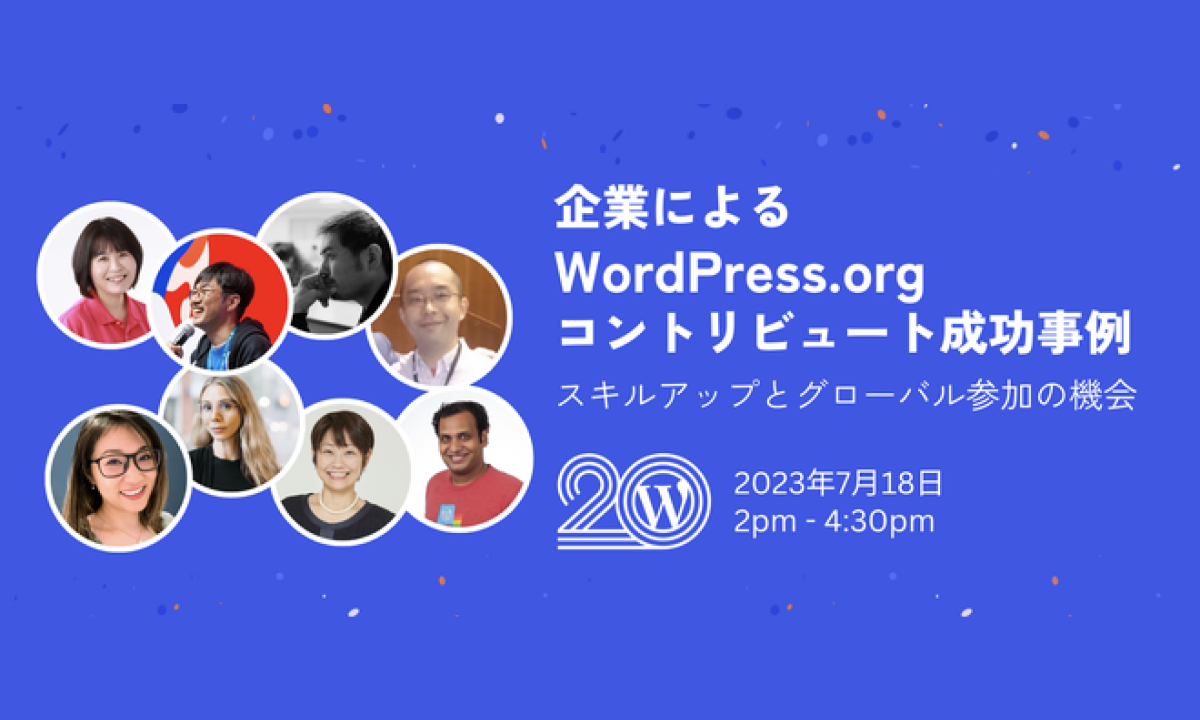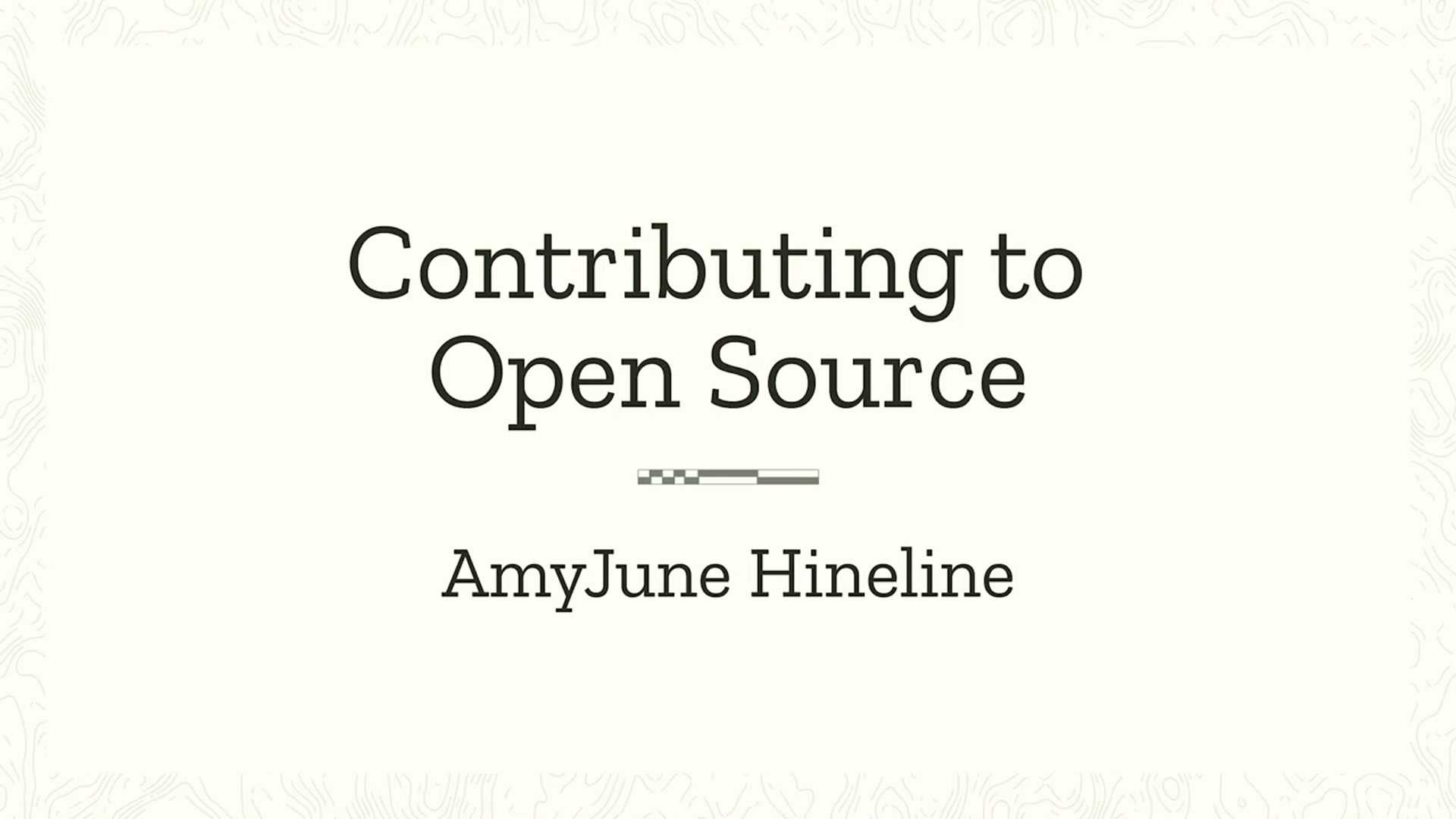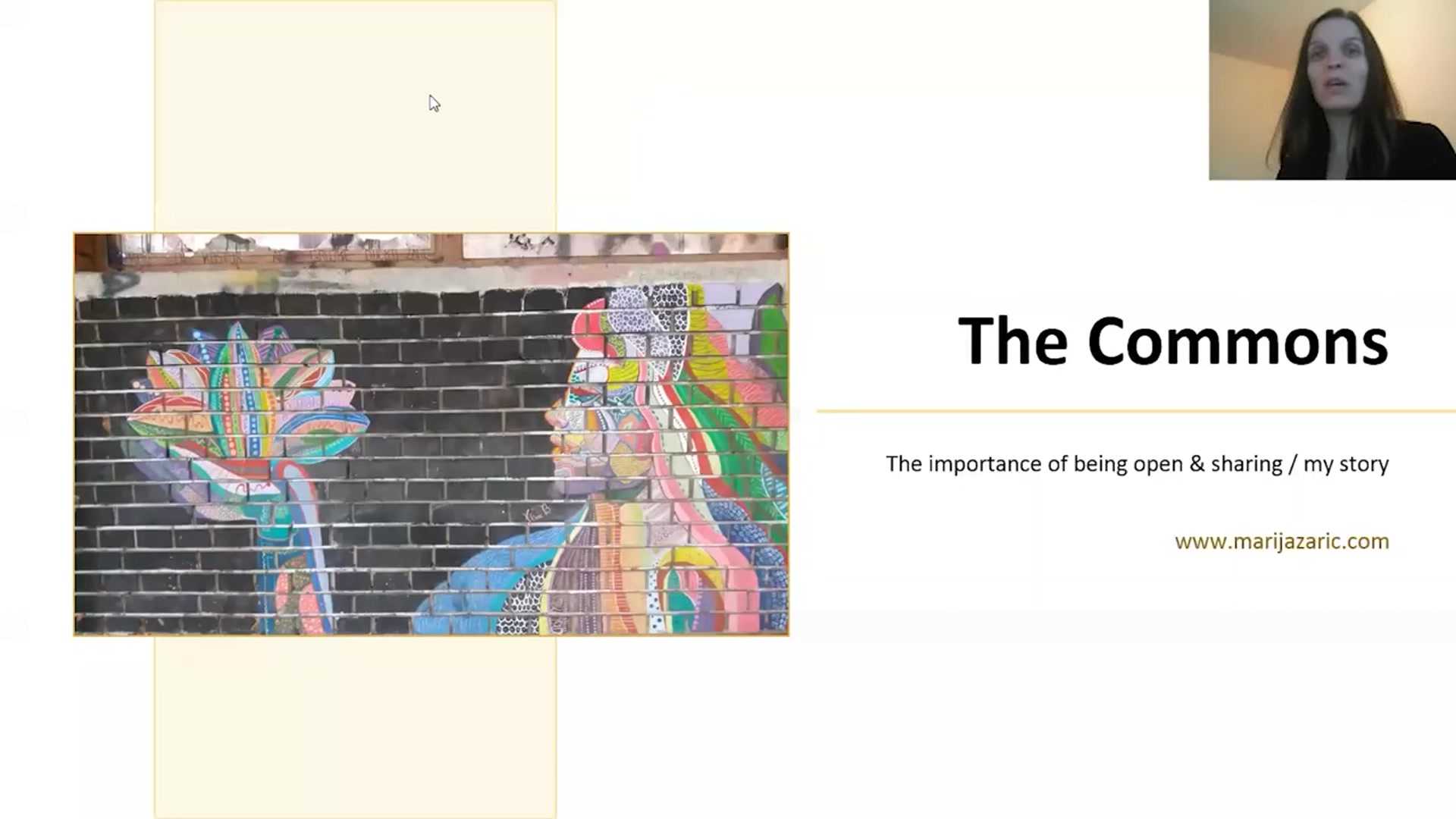‘Open Source’ Videos
-

The day I became an Open Source software developer
WordCamp Verona 2023Speaker: Dennis PloetnerDecember 18, 2023 — 12 years ago, when I started developing and maintaining my first plugin, I knew it was me the one who needed it. Deploying it to WordPress.org and sharing my work with other people seemed cool, almost obvious, like deploying your projects to Github/Bitbucket these days. But caring for a WordPress plugin is different.
-

Sustainability in WordPress – balancing the cost of contribution, business Involvement, and the future
WordCamp Germany 2023Speaker: Carole OlingerOctober 21, 2023 — Consider the evolving landscape of the WordPress industry. Striking a balance between the cost of open-source contribution, business involvement, and the sustainability of WordCamps has become a critical necessity. This talk offers an honest look at the issues at hand.
It’s time to pave the way for sustainable contribution to the project, including WordCamps, creating a more balanced WordPress ecosystem.
-

企業によるWordPress コントリビュート成功事例: スキルアップとグローバル参加の機会
5 for the Future Japan MeetupSpeakers: Naoko Takano, Hari Shanker, Angela Jin, Chloé Bringmann, Chieko Aihara, Hajime Ogushi, Hiromichi Koga, Shohei TanakaJuly 26, 2023 — ▶️ イベント概要
このイベントでは、WordPress プロジェクトへの貢献 (コントリビュート) がどのように企業の利益につながったか、その成功事例を共有します。これにより、参加者はプロジェクトへの貢献を通じて得られるメリットを理解することができ、また、どのようにして社員のスキルを向上させたり、世界的な協力関係を築いたりすることが可能なのかを学ぶことができます。国際的に Five for the Future という取り組みを通して、貢献を継続的に行っている企業が増えてきている中、国内企業がその動きを理解し、キャッチアップするためのイベントになればと思います。
▶️ Five for the Future (未来のための5%) とは
2014年にマット・マレンウェッグは、WordPress (CMS またはコミュニティ) の恩恵を受けている組織に対して WordPress プロジェクトの継続的な成功のためにリソースの5%を貢献することを呼びかけるため、Five for the Future を立ち上げました。先日の WordCamp ヨーロッパ基調講演でも、”Five for the Future” の活発化はプロジェクトの大きなニュースのひとつとして取り上げられています。▶️ イベント登壇者プロフィール (敬称略・あいうえお順)
企業代表
– 相原 知栄子: プライム・ストラテジー株式会社取締役副社長/企画開発部管掌
– 大串 肇: 株式会社 mgn 代表 / Webディレクター・Webコンサルタント
– 小賀 浩通: 株式会社デジタルキューブ代表取締役社長
– 田中昌平: 株式会社シノビアシ 代表取締役会長 兼 社長WordPress プロジェクト代表
– アンジェラ・ジン (Angela Jin): WordPress プログラム & コントリビューターエクスペリエンス部門責任者
– クロエ・ブリングマン (Chloé Bringmann): WordPress オペレーション責任者
– 高野直子: Five for the Future プロジェクトマネージャー
– ハリ・シャンカー (Hari Shanker): Five for the Future プロジェクトリード——————-
▶️ Event Summary
This event will share best practices on how contributing (Contributing) to WordPress projects has benefited companies. This will help participants understand the benefits of contributing to projects and learn how they can improve the skills of their employees and build global collaborations.As more and more companies internationally continue to make contributions through the Five for the Future initiative, we hope that this event will help domestic companies understand and catch up with this movement.
▶️ What is Five for the Future (5% for the Future)?
In 2014, Matt Mullenweg launched Five for the Future to encourage organizations that benefit from WordPress (CMS or community) to contribute 5% of their resources to the continued success of the WordPress project The organization is a member of the CMS and is a member of the WordPress community. The activation of “Five for the Future” was one of the major news stories of the project at the recent WordCamp Europe keynote.▶️ Event Speaker Profiles (titles omitted, in alphabetical order)
Company Representative
– Chieko Aihara: Vice President, Prime Strategy Co.
– Hajime Ohgushi: Representative of mgn Corporation / Web Director, Web Consultant
– Hiromichi Koga: President, Digital Cube Inc.
– Shohei Tanaka: Chairman and President, Synoviasi Inc.WordPress Project Representative
– Angela Jin: Head of WordPress Program & Contributor Experience
– Chloé Bringmann: Head of WordPress Operations
– Naoko Takano: Project Manager, Five for the Future
– Hari Shanker: Project Lead, Five for the Future -

Mentorship Program: Introduction to the WordPress Open Source Project
Learn WordPress, Mentorship Program: Introduction to the WordPress Open Source Project, WordPress Contributor Mentorship ProgramSpeaker: Hari ShankerJuly 25, 2023 — WordPress is an open source software that is built by a group of volunteers all over the world. It might be surprising to know that the software that powers over 40% of the internet is powered by a vibrant community all over the world. Everything around the WordPress open source project resolves around the website: https://wordpress.org
The WordPress project is huge and is built and maintained by a bunch of contributors all over the world. Development of WordPress happens in the open, and anyone can help build the software. Through this session, we aim to take a detailed look at the WordPress project and the group of programs that keep WordPress alive and active.
In this session, we will:
* Introduce you to the WordPress Project
* Talk about the different aspects of the WordPress project, and how it functions.
* Share how the WordPress project works under the hood. -

DevOps and open source: marriage made in Heaven
WordCamp Kochi 2019Speaker: Saurabh GuptaSeptember 27, 2022 — This talk discusses different stages of DevOps like SCM, CI/CD, Configuration Management, Monitoring, Alerting etc. and open source options available for the same.
-

Dennis Ploetner: Contribuire ad un progetto open source
WordPress Meetup MilanoSpeaker: Dennis PloetnerMarch 17, 2022 — Potresti non esserne consapevole, ma ogni giorno ricorri a qualche forma di software open source.
Per esempio, WordPress, il sistema di gestione dei contenuti più popolare e diffuso al mondo, è utilizzato dal 43% di tutti i siti web nel mondo. È open source e gratuito.
Ma cosa spinge le persone a contribuire gratuitamente a un progetto open source?
-

AmyJune Hineline: Contributing to Open Source
WordCamp US 2021Speaker: AmyJune HinelineDecember 13, 2021 — This talk discusses how to advocate for contributing to Open Source projects. (Did you know that not everyone who works on open source projects is a developer?)
Smaller tasks help newer contributors gain confidence and gain experience, which, in turn, leads to more contributions.
Contributing to Open Source also helps contributors feel connected with their community. But how does one become a contributor?
Learn what we can do as a community to help foster new contributors and encourage those who are already contributing.
-

Marija Zaric: The Commons – the importance of being open and sharing. My story.
WordCamp Finland (Suomi) 2020Speaker: Marija ZaricApril 1, 2021 — This talk shares how The Commons gave Marija Zaric an opportunity to learn, contribute, and evolve. The web is built on open source by wonderful altruistic people.
-

Introduction to Open-source
Speaker: Hari ShankerAugust 10, 2020 — In this video for learn.wordpress.org, lesson viewers will learn the meaning of the term Open Source when referring to software, what the GPL software license provides, why WordPress is an open-source project and how this is important for both the users of WordPress and the contributors to WordPress. We also do an overview of the different features of WordPress.
-

Ulf Schönefeld: WordPress und Community
WordPress Meetup NürnbergSpeaker: Ulf SchönefeldMarch 20, 2020 — Oft herrscht die Vorstellung vor, um an einem großen Open-Source-Projekt wie WordPress mitzuarbeiten zu können, müsste man zumindest ein Informatikstudium erfolgreich absolviert haben – genau mit diesem Trugschluss will Ulf Schönefeld aufräumen. Ziel ist es das Projekt WordPress und die dahinterstehende Community beim Termin näherzubringen. Wie sind selbige organisiert, was sind sinnvolle Anlaufstellen und welche Möglichkeiten bestehen sich dort einzubringen; selbst gesetzt dem Fall, dass man von technischen Dingen wie PHP, HTML, CSS oder JavaScript so überhaupt gar keine Ahnung hat.
